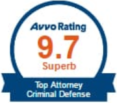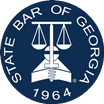Contributing to the Delinquency of a Minor in Georgia

Georgia’s criminal code includes an offense called contributing to the delinquency of a minor. This is generally aimed at anyone who supplies alcohol to an underage person — including serving, selling, or purchasing alcohol. However, there may be other elements to this rather broad offense.
Many people in Georgia are charged with contributing to the delinquency of a minor without even realizing that they have committed a crime. The consequences for these people are no less severe and a conviction can even lead to jail time.
It’s important to seek legal advice if you are accused of serving alcohol to a minor in Georgia. There’s no reason why an innocent mistake should lead to a lifelong criminal record that can greatly impact your future employment, education and other areas of your life.
Penalties for contributing to the delinquency of a minor in Georgia
Contributing to the delinquency of a minor is a misdemeanor offense that can lead to the following penalties:
- Up to 12 months in jail
- A fine of $750 to $1,000
In some cases, the parents of the minor to whom alcohol was supplied may file a civil lawsuit against the defendant too. This adds to the potential financial punishments associated with contributing to the delinquency of a minor.
What is considered “contributing to the delinquency of a minor”?
Under Georgia Code Title 16. Crimes and Offenses § 16-12-1, a person (“service provider”) commits the crime of contributing to the delinquency or dependency of a minor when they knowingly and willfully encourage, cause, abet, connive, or aid a minor in committing a delinquent act.
This does not apply, however, if the service provider notifies the minor’s parent, guardian or legal custodian of the minor’s location and general state of well-being as soon as possible (but no later than 72 hours after the minor accepts services).
No notification to parents or guardians is required if the service provider has reasonable cause to believe that the minor has been abused or neglected and submits a child abuse report — or if the minor will not disclose the name of his/her parent or guardian or the parent/guardian cannot be reached.
In these cases, informing the Division of Family and Children Services (part of the DHS) within 72 hours of the minor’s acceptance of services will be sufficient to prevent criminal charges from being filed.
Anyone who supplies or serves alcohol should be aware of the above regulations to prevent potential legal issues — both criminal and civil.
For the purposes of this law, “minor” is defined as anyone under the age of 17. The legal drinking age in Georgia is 21, however. Selling to, purchasing for, or attempting to buy alcohol for someone under 21 can be charged with a misdemeanor offense under the Official Code of Georgia §3-3-23, which is outlined below.
Note that the laws concerning contributing to the delinquency of a minor extend beyond the supply of alcohol. A person may also be guilty of the offense if they fail to act in certain circumstances if they hire, solicit, engage, contract with, conspire with, encourage, abet or direct any minor to commit a crime that would usually be classed as a felony or if they provide any firearm, dangerous weapon or hazardous object to a minor to commit any felony.
Is “social hosting” considered contributing to the delinquency of a minor?
Currently, Georgia state laws do not address the situation of a parent or supervising adult knowingly allowing minors to consume alcohol on their property (“social hosting”).
For instance, the current statutes create no liability if a parent or other adult knows or reasonably should know that a group of minors are planning to hold a party and drink alcohol in their house.
Several related laws cover certain similar situations, but none can be used to address the above scenario.
Furnishing Alcoholic Beverages to a Minor
For instance, the Georgia statutes include the crime of “Furnishing Alcoholic Beverages to a Minor” (O.C.G.A. §3-3-23). However, this only covers when a person furnishes, causes to be furnished or permits any person in their employ to furnish alcohol to a minor. Unless parents actively provide alcohol to the minors, no liability results from a group of minors drinking under their roof, even if the parents know it’s happening.
Maintaining a Disorderly House
The offense of “Maintaining a Disorderly House” (O.C.G.A. §16-11-44) is another inclusion in the Official Code of Georgia. This antiquated-sounding law is aimed at people who maintain houses or establishments that are regularly used for drinking and gambling. A one-off party even held by minors will not meet the standard.
Reckless Conduct
“Reckless conduct” (O.C.G.A. 16-5-60a) covers causing bodily harm to or endangering the safety of another person by consciously disregarding a substantial and unjustifiable risk. However, it may only apply to the above party scenario if either actual bodily harm is caused, or it could be proven that the safety of another individual was endangered. Simply allowing a party of minors to drink alcohol would not qualify for this offense.
So, ultimately, under the current laws in Georgia, parents who allow their underage children (or other people’s children) to drink in their home cannot be held criminally liable unless:
- They furnish alcohol to a minor, or
- They organize the party, or
- They ignore a substantial and unjustifiable risk, or
- An injury results from the party, or
- The parties are held regularly.
If you’re accused of contributing to the delinquency of a minor in Georgia, a skilled criminal defense lawyer can help reduce the impact on your future. Contact Michael Fulcher Law, LLC for a free consultation.




